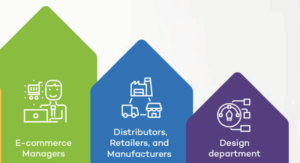Your PIM Project Timeline: A Clear Roadmap to Success
Introduction: No More Guesswork
Embarking on a PIM project is a significant step towards growth, and we believe you deserve complete clarity from day one. For a mid-sized business, a well-defined timeline is crucial for planning resources, setting expectations, and ensuring a smooth transition.
This is a typical roadmap for a successful PIM implementation. While every project is unique, this framework will give you a confident understanding of the journey ahead.
Typical Timeline for a Mid-Sized Business: 12 - 20 Weeks
This range depends on data complexity, number of products, and specific customization needs.
Phase 1: Discovery & Planning (Weeks 1-4)
Laying the Foundation for Success
This initial phase is about alignment and strategy. We invest time here to ensure the entire project runs smoothly.
- Week 1-2: Kick-off & Requirements Gathering
- Project kick-off meeting with your key stakeholders.
- In-depth workshops to understand your business processes, pain points, and goals.
- Mapping all data sources (ERP, PLM, spreadsheets, digital asset libraries).
- Identifying all sales channels (e-commerce, marketplaces, distributors).
- Week 3-4: Solution Design & Project Plan
- We define your future-state product data model (attributes, categories, taxonomy).
- Finalize the integration strategy with your existing systems.
- Develop a detailed project plan with milestones, responsibilities, and success metrics.
- Milestone Achieved: Signed-off Project Blueprint & Plan.
Phase 2: System Configuration & Integration (Weeks 5-10)
Building Your Central Hub
This is where we configure the PIM platform to your exact specifications and connect it to your business ecosystem.
- Week 5-7: Core Configuration & Setup
- Configure the PIM environment based on the approved data model.
- Set up user roles, permissions, and data validation rules.
- Design and implement automated workflows for data enrichment and approval.
- Week 8-10: Integration & Data Migration Testing
- Develop and test secure connections (APIs) between your PIM, ERP, and other core systems.
- Build the "export pipes" to your key channels (e.g., your website, Amazon).
- Perform a pilot data migration with a sample product set to test and refine the process.
Phase 3: Data Migration & Enrichment (Weeks 11-16)
Breathing Life into Your Products
This phase focuses on moving your existing product data into the PIM and transforming it into a powerful sales asset.
- Week 11-12: Full Data Migration
- Execute the full migration of your product data and digital assets into the PIM.
- Conduct data quality checks and cleanup within the new system.
- Week 13-16: Data Enrichment & Team Training
- Your team begins enriching product information using the new workflows and tools.
- We provide comprehensive administrator and end-user training sessions.
- Milestone Achieved: Your enriched product catalog is live in the PIM.
Phase 4: Go-Live & Post-Launch Support (Weeks 17-20+)
Launching with Confidence
We ensure a smooth launch and provide ongoing support to guarantee you achieve long-term success.
- Week 17-18: Staging & Final Validation
- Conduct User Acceptance Testing (UAT) in a staging environment.
- Perform end-to-end tests, pushing data from the PIM to a test sales channel.
- Finalize all training materials and documentation.
- Week 19: Go-Live!
- Officially cut over to the new PIM system.
- Begin flowing live, enriched product data to your primary sales channel (e.g., your e-commerce site).
- Our team is on standby for immediate support.
- Week 20+: Optimization & Continuous Growth
- We provide dedicated post-launch support for the first 30-60 days.
- Review performance against your initial goals and KPIs.
- Plan for phase 2 enhancements, such as adding more channels or advanced features.
What Factors Can Influence This Timeline?
- Data Readiness: Clean, well-structured data accelerates the process. Complex, messy data requires more time.
- Number of Products & Attributes: A catalog of 5,000 products with 20 attributes will be faster than 50,000 products with 200 custom attributes.
- Customization Needs: Standard integrations are quick. Highly custom workflows or connections may extend the timeline.
- Internal Team Availability: Timely feedback and decisions from your team are critical for staying on schedule.
Our Promise: Partnership and Transparency
We don't just build software; we build partnerships. You will have a dedicated project manager and a clear view of progress through regular status updates and a shared project dashboard. Our goal is to deliver your PIM system on time and on budget, setting your business up for accelerated growth.


